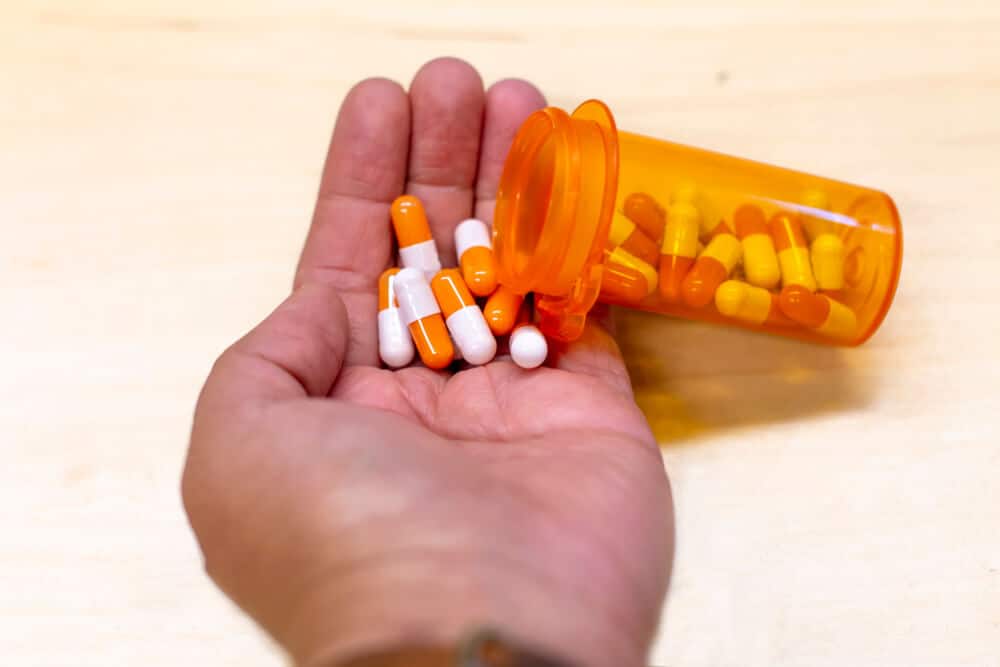Current data shows that Adderall is the 27th most commonly prescribed drug in the United States, with 24,155,783 current prescriptions filled for this drug and similar prescription medications. That’s an enormous leap from the 4,149,721 prescriptions from just 10 years ago.*
Despite the fact that Adderall is so popular, most people know little about it. So, just what is this drug, anyway? And how long does Adderall stay in your system?
What is Adderall?
Adderall is in a class of drugs known as central nervous system stimulants. In other words, this medication stimulates the central nervous system (CNS). How does it do that? Effectively by boosting the neurotransmitter dopamine.
Experts believe that dopamine plays a key role in the CNS and significantly impacts motivation. That is the reason this drug is so popular for managing conditions like attention-deficit/hyperactivity disorder (ADHD).
How Long Does Adderall Stay in Your System?
The answer to that question varies based on several factors. That being said, the American Addiction Centers states that Adderall may be detected in the following samples after last use:
Saliva: 20-50 hours
Blood: 46 hours
Urine: 72-96 hours
Hair follicle: 3 months
*Statistics based on values for Dextroamphetamine; Dextroamphetamine Saccharate; Amphetamine; Amphetamine Aspartate, the “generic” form of Adderall.
Is Adderall the Same as Meth?
Adderall is not exactly the same as the street drug meth⦠but it’s pretty darn close.
Adderall is actually a combination of four different kinds of amphetamines:
- Amphetamine aspartate monohydrate
- Amphetamine sulfate
- Dextroamphetamine saccharate
- Dextroamphetamine sulfate
This is what its chemical structure looks like:

Here is the chemical structure of methamphetamine:

The main difference between the two? That one little extra methyl group (CH3).
These drugs are similar in structure, but do they act similarly, too?
According to some research, yes.
In a small randomized, double-blind, placebo-controlled, cross-over study, researchers found that participants given Adderall had similar reactions to those given meth. More than that, people given Adderall were just as likely as the meth group to opt for additional doses of the drug compared to another reward. Not sold on the similarity yet? The two drugs were so similar that regular meth users couldn’t really tell the difference between the two.
So why is street meth considered so much more dangerous than Adderall?
There are a few reasons, these same researchers believe. For starters, those taking meth recreationally often take more than the legal doses of Adderall. Furthermore, most people who take meth recreationally do so through smoking or via needles. This route of administration produces results much more quickly than the traditional administration route of Adderall (by mouth). Researchers also speculate that popular perceptions of both drugs play a part here, too.
The takeaway from this research? This study shows that Adderall has the potential to be as addictive as meth. This finding alone should discourage people from abusing this prescription drug.
FAQ
What is the half-life of Adderall?
According to the FDA, the half-life of Adderall is approximately 10 hours.
Does Adderall wear off over time?
For more information about the long-term effects of taking Adderall, please visit our long-term effects page.
Please also be cautious about the potential dangers of abruptly ceasing treatment with Adderall. Never alter or stop your dosing unless instructed by your physician. For more information on Adderall withdrawal, please visit our withdrawal page.
How do you know when your Adderall is wearing off?
The effectiveness of Adderall may “wear off” faster depending on your dosage strength and the more time that has passed since you last took a dose. If you take Adderall long-term, you may also notice a lowered effectiveness of the drug. This is why it’s so important to communicate with your prescribing physician about any and all side effects you experience during your treatment with Adderall.
Disclaimer: this article does not constitute or replace medical advice. If you have an emergency or a serious medical question, please contact a medical professional or call 911 immediately. To see our full medical disclaimer, visit our Terms of Use page.
More about Adderall
- Pregnancy Risks
- Withdrawal
- Adderall and Alcohol Interactions
- Adderall Alternatives
- Ritalin vs. Adderall
- Strattera vs. Adderall
- What does Adderall look like?
- Can you overdose on Adderall?
- Adderall for Depression
- Long-Term Effects of Adderall
- What is Adderall prescribed for?
- Is Adderall a stimulant?
- How Long Does Adderall Stay In Your System?







